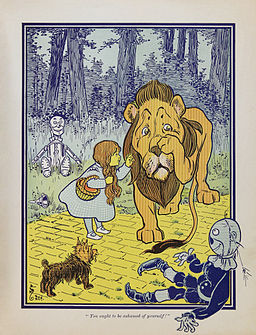The Strait of Messina, that is. As in, right between Scylla and Charybdis.
Charybdis: Try to do everything and fail at most of it.
Scylla: Compromise. Give up some things, and hang onto what's essential.
Odysseus had to sacrifice some of his crew to Scylla to avoid losing the entire ship to Charybdis. (Yes, I know that people use this image to mean two equally bad alternatives. I can’t help it; I like Homer.)
In the wake of ACC’s COVID-19 response, an LA prof asked me for advice about going online, and here’s what I said:
Set low expectations and prioritize mercilessly. This is triage, not reconstructive surgery. The outcome has to work, but it doesn’t have to be pretty. Our goal is to survive, with as much integrity as possible, until the end of the spring semester. The only way to do that is to hang onto what is foundational.
Let’s say you decided to overhaul your course and transform it into a lighthouse beacon of online teaching. You look, for instance, at TLED’s excellent collection of resources, and you think: Whoa — I could do anything with all this stuff!
Wake up. That’s not where we are this week. What if you have little or no experience with online teaching, and you have to be ready in, like, two weeks? Now that magnificent collection of resources looks a lot like you’ve been asked to count grains of sand on a very long Sicilian beach, by next Monday.
So, look away for a moment. Take stock: What is actually necessary for you to do to make your course work? Start with the foundational and genuinely necessary, and build up from there — if you have time. This is triage.
If you’re a professor in that situation, you’re likely to translate your tried-and-true teaching strategies strait from f2f into online. Under normal circumstances, you’d have all sorts of people telling you that you’ve got the wrong approach because online teaching isn’t analogous to f2f teaching, etc. They’re right, but ignore those voices, especially if they’re inside your head. This is triage.
ACC is going to give you access to a mentor (who should be an experienced online prof) and to instructional designers. Use these resources to find ways to leverage what you do best as a teacher and turn it to your advantage online. Avoid Charybdis, and pass by Scylla.
If your class is heavily text-based, my staff are available to scan and deliver pdfs right to a google drive with your name on it, ready to be dropped into your Blackboard course or shared with students.
If you typically lecture, look at Collaborate or try a lower-bar videoconferencing tool like Google Meet — and again, we’re here to help you hook it up with the training you need.
Let’s say you’re into student discussion groups: Recast them into discussion boards. Post a video of yourself setting up the discussion and then turn them loose. Use Google Meet’s chat function to get your students engaged in what you’re saying by posing questions. Get students to collaborate digitally and make a YouTube video explaining something. (Your students are probably ready to do that on their own, so leverage their skills as well!)
I’m asking department chairs to set up Blackboard shells for courses or clusters of courses and invite generous experienced online profs to drop their assignments and other useful artifacts into that shell. Steal from them — if their assignments help you achieve your goal, copy them into your shell and sail on.
We need to make it through the strait, one way or another. Embrace the fact that it’s not going to be a luxury cruise. This is not the time to judge yourself by an inappropriate standard, like the work you would do if you had the inclination and all the time in the world.
This is triage. We can do triage.



